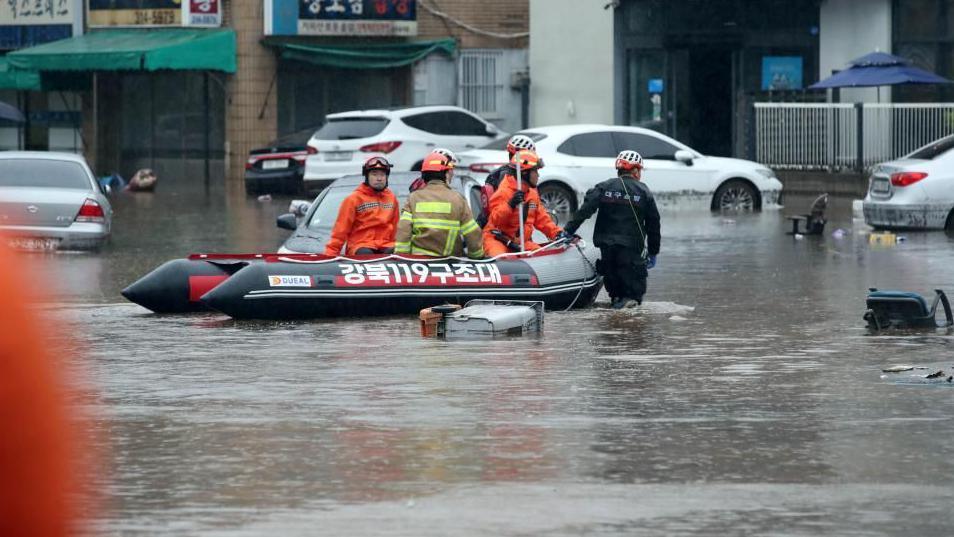
No fewer than 18 people died on Monday and none other persons missing after a heavy flooding and landslides that battered South Korea in recent days eased on Monday, according to the Ministry of the Interior and Safety.
The torrential downpours, affected Gapyeong area northeast of Seoul, triggered record-breaking rainfall and caused extensive damage to homes, roads, and farmlands.
In Gapyeong alone, 173 millimetres (6.8 inches) of rain fell within just 17 hours on Sunday — surpassing South Korea’s previous national daily rainfall record of 156.3 mm, set in 1998. The relentless downpour swept away vehicles, buried homes in landslides, and left residents clinging to life.
“The ground just sank beneath me, and the water rose all the way up to my neck,” said Ahn Gyeong-bun, a 65-year-old restaurant owner who narrowly survived. “Luckily, there was an iron pipe nearby. I held on to it with all my strength.” Her restaurant, a decade-old establishment near the swollen river, was nearly wiped out by the floods.
Two people were confirmed dead and four remain missing in Gapyeong following a landslide that engulfed homes.
Nationwide, the ministry reported damage to nearly 2,000 public structures and over 2,200 private facilities, including farms.
The Interior Ministry said it would continue to coordinate disaster response efforts even as the immediate rainfall threat recedes.
However, the Korea Meteorological Administration has now issued a heatwave watch across the country, warning of extreme temperatures in the coming days.
President Lee Jae Myung, who assumed office in June, has ordered a full-scale response to the disaster.
In a statement, his spokesperson Kang Yu-jung stressed the need for long-term, regional-specific measures to better prepare for increasingly frequent extreme weather events.
“As local heavy rains have become commonplace, customised measures based on regional characteristics are urgently needed,” Kang said. “If serious laxity or mistakes are found in civil servants’ discipline, we will hold them accountable and take thorough action to prevent a recurrence.”






